At the Third Smarter Sustainability Reporting conference this week in London (more about that to come on the CSR Reporting Blog), we were privileged to hear from Erinch Sahan, Policy Advisor, Private Sector, Oxfam GB about the updated Behind the Brands Scorecard, released today, 26th February. Erinch gave a passionate, informative and entertaining overview of the work he and his team have been leading at Oxfam. Sort of a Behind the Scenes at Behind the Brands.
As you may know, Behind the Brands is part of Oxfam’s GROW campaign to help create a world where everyone has enough to eat. Oxfam says that while the food system is complex and its problems multi-faceted, we know that the world’s largest food and beverage companies have enormous influence. Their policies drive how food is produced, the way resources are used and the extent to which the benefits trickle down to the marginalized millions at the bottom of their supply chains. The Behind the Brands Scorecard assesses the agricultural sourcing policies of the world's 10 largest food and beverage companies. It exclusively focuses on publicly available information that relates to the policies of these companies on their sourcing of agricultural commodities from developing countries. Companies selected are those with the largest overall revenues globally, and are included in the Forbes 2000 annual ranking, which measures companies on the basis of composite sales, assets, profits and market value. The intent is to provide stakeholders with information about the brands they engage with, and also urge them to take action to drive these companies to do more to address issues in their supply chains.
The work of the Oxfam team started with an initial assessment a year ago, and during that time there have been significant instances of engagement with the companies in the Behind the Brands scorecard and several achievements can be noted. For example, on issues relating to lack of gender ineqality in chocolate supply chains, Mars, Nestle and Mondelez all committed to investigating barriers to women and making plans to address these, as well as signing the UN Women's Empowerment Principles. Similarly, in focusing on the issue of land acquisition, Oxfam was able to drive change.
Since this campaign, which urged companies to establish and implement a zero tolerance policy on land grabbing, including adherence to the principle of FPIC (free prior and informed consent) in the operations of the company and its suppliers, Coca-Cola announced a set of industry-leading commitments to protect the land rights of farmers and communities in the world’s top sugarcane-producing regions. Other major companies have followed suit with declarations of policy and new action in this area. Behind the Brands, therefore, is not only a review of policy but a powerful tool to drive change through transparency, engagement and focus.
When the original Behind the Brands scorecard was published, I admit to having some reservations about a tool which tracks only declared policy rather than actual practice. I asked Erinch Sahan about this. Here are his thoughts:
1. We chose policies that link to processes that would be harder to disclose without changing behavior.
2. Tracking policy also allows others to hold companies to account. Once there is a public commitment from global companies to do something, local efforts to improve practices on the ground have greater legitimacy and influence.
3. Most importantly, most of the indicators require companies to be more engaged in their supply chains collect information on the issues and often, conduct joint projects with suppliers and stakeholders to address issues and have the right requirements in supplier codes and guidelines. In our experience, these correlate strongly with the companies who are doing more on the ground.
After hearing about the massive progress that has been made in issues largely ignored in most of the Sustainability Reports of large food companies to date, I am tending to believe that Behind the Brands is indeed an effective tool to drive performance change, proving one of my long-time mantras: transparency (and reporting) is a catalyst for performance improvement.
Erinch was kind enough to send me some further information explaining the updated Behind the Brands Scorecard. Here are his words, a sort of rare "guest post" on the CSR Reporting Blog.
It’s a year since we launched our scorecard. Having clawed through company reports, analyzing every commitment and policy of the world’s 10 largest food and drinks companies (‘the Big 10’), we scored companies on a range of issues impacting the lives of people living in poverty around the world. A year later, having rigorously updated the scorecard, we reflect on how companies are tracking on the seven issues we cover: workers, farmers, women, land, climate, water and transparency.
Most are improving
The companies are on the right track. All but General Mills have improved their overall scores since February 2013. The top three (Nestle, Unilever and Coca-Cola) separated themselves further from the pack and saw the biggest jump in scores with overall increases of 10 percent, 14 percent and 13 percent. The companies in the middle of the pack (Danone, Mars, Mondelez and PepsiCo) saw mild improvements. There were some improvements also at the bottom of the scorecard. Associated British Foods and Kellogg’s - previously ranked 10th and 8th respectively - saw increases in scores of 7 and 6 percent respectively. As a result, General Mills is now at the bottom of the rankings.
High performers emerging
A year ago, no company could be classified as having “good” policies on any issue (scoring 8 or above out of 10). There are now two that achieve this feat. Unilever, with its score of 8 for farmers, has shown true leadership in pursuing supply chains that are inclusive and fair for smallholder farmers. Nestle (scoring 8 on climate) continues to lead all companies on climate, where we assess both efforts to reduce emissions and to help farmers adapt to a changing climate. In both cases, the results mirror broader assessments of these companies. The Carbon Disclosure Project’s Leadership Index puts Nestle first among its peers, and Unilever is widely recognized for its work on dealing more fairly and inclusively with smallholder farmers.
No longer ignoring land and women’s rights and improvements on climate
A year ago, it was clear that the industry was failing on two key issues: how it addresses women’s inequality and land rights. Scores were woeful and none of the Big 10 had an approach that addressed the plight of women working on farms around the world and none were making suppliers respect the rights of communities over land. In response, we spent the last year reminding companies about these blind-spots, asking supporters (nearly 400,000 supporters spoke up), investors (representing billions of dollars asked the companies to act) and civil society to join us in urging the Big 10 to start addressing gender and land issues.
The results are encouraging. Led by Coca Cola, six of the Big 10 now endorse the principle of Free, Prior and Informed Consent on land acquisition. This is key in ensuring communities have a say over what happens to the land they depend upon. Seven of the Big 10 have signed on to the UN Women’s Empowerment Principles, which demonstrates a commitment to ensuring the industry starts addressing the barriers faced by women on farms and markets around the world. Similarly on climate, companies have started putting in place targets to reduce emissions and start disclosing more about their carbon footprint.
Too many issues remain unaddressed
While we saw impressive improvements on women’s rights, land and climate change, we didn't see the same level of movement in the workers, farmers and water themes. On these themes, (apart from Coca Cola on water), no company showed significant improvements. On water and workers issues, companies had already picked off the ‘low hanging fruit’ and taken some steps to strengthen their commitments. For instance, a year ago, most companies had already recognized the International Labor Organization’s labor rights conventions and were disclosing key water information through the Climate Disclosure Program’s Water Program. But a year later, still only PepsiCo recognizes the UN Human Right to Water and no company has set a specific target to reduce its water use along its whole supply chain.
On farmers, only four companies (Danone, General Mills Nestle and Unilever), mildly improved their performance over the course of the year. Most continue to ignore the importance of ensuring dealings with farmers are fair and inclusive (e.g. through transparent contracts and ensuring farmers are paid fairly).
What are they hiding?
The industry has started to disclose a little more about their agricultural sourcing, but many still shy away from revealing who they buy from. Allowing consumers, the public and communities to work out which producers connect to which global brands is key for accountability. Though the Big 10 are by-and-large preventing this.
The updated scorecard now also assesses a critical new component of transparency – taxes – focusing on whether companies disclose information linked to the use of tax havens. New indicators on transparency now ensure that we better capture this important theme. People and corporations using tax havens are depriving the world of more than $150 billion in lost revenue, enough money to end extreme poverty twice over. Through our new tax indicators Oxfam aims to identify which companies are most open and accountable in their tax dealings. With the exception of Unilever and Coca-Cola, all the companies fail miserably in tax disclosure. This helped drag the transparency scores of four companies down by 1 point, with only Unilever slightly improving its overall transparency score over the course of the year.
What next?
We’ll continue to score the companies on these issues, highlighting where they improve and drawing attention to where they don’t. We’ll also keep talking to supporters, investors, civil society and governments to get others to also deliver the message on fair and sustainable agriculture to the Big 10.
If companies are to show leadership on these issues (and see their scores improve), they have to start taking some tougher actions, such as:
1. Pay a sustainable price
Addressing sustainability comes at a cost. In many circumstances it may seem to cost more in the short term to grow ingredients in a way that respects rights, pays farmers and workers fair prices and wages, and protects the planet. But the farmers who grow the ingredients capture a tiny amount of the value of the prices paid by consumers, with cocoa farmers receiving as low as 3.5 per cent of the price of a chocolate bar, coffee growers receiving as little as 7 per cent of the price of coffee in supermarkets and tea farmers getting as little as 1 per cent of the price of tea. With so little of the final price going to the farmers, ensuring farmers get a fairer and more sustainable price for their producer won’t necessarily require consumers to pay. It can be covered by a marginal shift in how value and profits are shared between farmers and the rest of the food system. For company commitments to be more meaningful, there needs to be an assurance of their intention to pay the price for fair and sustainable production.
2. Proactively find and address problems
The UN Guiding Principles on Business and Human Rights (‘the Ruggie Principles’), which are quickly becoming the consensus on how responsible companies approach human rights, ask companies to be proactive in finding human rights risk. It is no longer acceptable to wait passively for problems to pop up. Too many companies are still struggling to show they know where the problems are in their operations and remain uncomfortable opening up their supply chains to scrutiny.
3. Focus on rights and give the poorest real voice
Emerging issues like land and women’s rights are rising up the agenda. Rights is the ‘new black’ in sustainability and recognizing and respecting rights should be core business for any company. However, ‘voice’ is quickly joining the rights agenda as the ‘next black’. Giving marginalized people a say over their lives (like on land rights where 5 of the ‘Big 10’ are giving communities the right to free, prior and informed consent) is critical. Whether it’s workers having a say in their working conditions through collective bargaining, farmers able to control their destiny through producer organizations or women able to raise concerns via women’s organizations, there are many ways the ‘Big 10’ can use their immense power to give people with little power a real voice.
4. Avoid catastrophe on climate change
Climate change is already having a terrible impact on the lives of agricultural communities around the world. Extreme weather is also impacting the supply chains and operations of the Big 10. The Big 10 need to both reign in their own emissions (and those of their suppliers) whilst also helping farmers adapt to a changing climate. More broadly, the planet needs their powerful voice needs to get behind broader action to tackle climate change. Oxfam will be increasingly speaking up on this issue.
Behind the Brands seems to me to be doing great work. I guess we will be seeing more of these issues showing up in the Materiality Matrices of the Big 10 in their new G4 Sustainability Reports in coming years. Thanks to Erinch for great insights and for the guest post!
When the original Behind the Brands scorecard was published, I admit to having some reservations about a tool which tracks only declared policy rather than actual practice. I asked Erinch Sahan about this. Here are his thoughts:
1. We chose policies that link to processes that would be harder to disclose without changing behavior.
2. Tracking policy also allows others to hold companies to account. Once there is a public commitment from global companies to do something, local efforts to improve practices on the ground have greater legitimacy and influence.
3. Most importantly, most of the indicators require companies to be more engaged in their supply chains collect information on the issues and often, conduct joint projects with suppliers and stakeholders to address issues and have the right requirements in supplier codes and guidelines. In our experience, these correlate strongly with the companies who are doing more on the ground.
After hearing about the massive progress that has been made in issues largely ignored in most of the Sustainability Reports of large food companies to date, I am tending to believe that Behind the Brands is indeed an effective tool to drive performance change, proving one of my long-time mantras: transparency (and reporting) is a catalyst for performance improvement.
Erinch was kind enough to send me some further information explaining the updated Behind the Brands Scorecard. Here are his words, a sort of rare "guest post" on the CSR Reporting Blog.
*******
A year later, Big 10 improving but more is needed
It’s a year since we launched our scorecard. Having clawed through company reports, analyzing every commitment and policy of the world’s 10 largest food and drinks companies (‘the Big 10’), we scored companies on a range of issues impacting the lives of people living in poverty around the world. A year later, having rigorously updated the scorecard, we reflect on how companies are tracking on the seven issues we cover: workers, farmers, women, land, climate, water and transparency.
Most are improving
The companies are on the right track. All but General Mills have improved their overall scores since February 2013. The top three (Nestle, Unilever and Coca-Cola) separated themselves further from the pack and saw the biggest jump in scores with overall increases of 10 percent, 14 percent and 13 percent. The companies in the middle of the pack (Danone, Mars, Mondelez and PepsiCo) saw mild improvements. There were some improvements also at the bottom of the scorecard. Associated British Foods and Kellogg’s - previously ranked 10th and 8th respectively - saw increases in scores of 7 and 6 percent respectively. As a result, General Mills is now at the bottom of the rankings.
High performers emerging
A year ago, no company could be classified as having “good” policies on any issue (scoring 8 or above out of 10). There are now two that achieve this feat. Unilever, with its score of 8 for farmers, has shown true leadership in pursuing supply chains that are inclusive and fair for smallholder farmers. Nestle (scoring 8 on climate) continues to lead all companies on climate, where we assess both efforts to reduce emissions and to help farmers adapt to a changing climate. In both cases, the results mirror broader assessments of these companies. The Carbon Disclosure Project’s Leadership Index puts Nestle first among its peers, and Unilever is widely recognized for its work on dealing more fairly and inclusively with smallholder farmers.
No longer ignoring land and women’s rights and improvements on climate
A year ago, it was clear that the industry was failing on two key issues: how it addresses women’s inequality and land rights. Scores were woeful and none of the Big 10 had an approach that addressed the plight of women working on farms around the world and none were making suppliers respect the rights of communities over land. In response, we spent the last year reminding companies about these blind-spots, asking supporters (nearly 400,000 supporters spoke up), investors (representing billions of dollars asked the companies to act) and civil society to join us in urging the Big 10 to start addressing gender and land issues.
The results are encouraging. Led by Coca Cola, six of the Big 10 now endorse the principle of Free, Prior and Informed Consent on land acquisition. This is key in ensuring communities have a say over what happens to the land they depend upon. Seven of the Big 10 have signed on to the UN Women’s Empowerment Principles, which demonstrates a commitment to ensuring the industry starts addressing the barriers faced by women on farms and markets around the world. Similarly on climate, companies have started putting in place targets to reduce emissions and start disclosing more about their carbon footprint.
Too many issues remain unaddressed
While we saw impressive improvements on women’s rights, land and climate change, we didn't see the same level of movement in the workers, farmers and water themes. On these themes, (apart from Coca Cola on water), no company showed significant improvements. On water and workers issues, companies had already picked off the ‘low hanging fruit’ and taken some steps to strengthen their commitments. For instance, a year ago, most companies had already recognized the International Labor Organization’s labor rights conventions and were disclosing key water information through the Climate Disclosure Program’s Water Program. But a year later, still only PepsiCo recognizes the UN Human Right to Water and no company has set a specific target to reduce its water use along its whole supply chain.
On farmers, only four companies (Danone, General Mills Nestle and Unilever), mildly improved their performance over the course of the year. Most continue to ignore the importance of ensuring dealings with farmers are fair and inclusive (e.g. through transparent contracts and ensuring farmers are paid fairly).
What are they hiding?
The industry has started to disclose a little more about their agricultural sourcing, but many still shy away from revealing who they buy from. Allowing consumers, the public and communities to work out which producers connect to which global brands is key for accountability. Though the Big 10 are by-and-large preventing this.
The updated scorecard now also assesses a critical new component of transparency – taxes – focusing on whether companies disclose information linked to the use of tax havens. New indicators on transparency now ensure that we better capture this important theme. People and corporations using tax havens are depriving the world of more than $150 billion in lost revenue, enough money to end extreme poverty twice over. Through our new tax indicators Oxfam aims to identify which companies are most open and accountable in their tax dealings. With the exception of Unilever and Coca-Cola, all the companies fail miserably in tax disclosure. This helped drag the transparency scores of four companies down by 1 point, with only Unilever slightly improving its overall transparency score over the course of the year.
What next?
We’ll continue to score the companies on these issues, highlighting where they improve and drawing attention to where they don’t. We’ll also keep talking to supporters, investors, civil society and governments to get others to also deliver the message on fair and sustainable agriculture to the Big 10.
If companies are to show leadership on these issues (and see their scores improve), they have to start taking some tougher actions, such as:
1. Pay a sustainable price
Addressing sustainability comes at a cost. In many circumstances it may seem to cost more in the short term to grow ingredients in a way that respects rights, pays farmers and workers fair prices and wages, and protects the planet. But the farmers who grow the ingredients capture a tiny amount of the value of the prices paid by consumers, with cocoa farmers receiving as low as 3.5 per cent of the price of a chocolate bar, coffee growers receiving as little as 7 per cent of the price of coffee in supermarkets and tea farmers getting as little as 1 per cent of the price of tea. With so little of the final price going to the farmers, ensuring farmers get a fairer and more sustainable price for their producer won’t necessarily require consumers to pay. It can be covered by a marginal shift in how value and profits are shared between farmers and the rest of the food system. For company commitments to be more meaningful, there needs to be an assurance of their intention to pay the price for fair and sustainable production.
2. Proactively find and address problems
The UN Guiding Principles on Business and Human Rights (‘the Ruggie Principles’), which are quickly becoming the consensus on how responsible companies approach human rights, ask companies to be proactive in finding human rights risk. It is no longer acceptable to wait passively for problems to pop up. Too many companies are still struggling to show they know where the problems are in their operations and remain uncomfortable opening up their supply chains to scrutiny.
3. Focus on rights and give the poorest real voice
Emerging issues like land and women’s rights are rising up the agenda. Rights is the ‘new black’ in sustainability and recognizing and respecting rights should be core business for any company. However, ‘voice’ is quickly joining the rights agenda as the ‘next black’. Giving marginalized people a say over their lives (like on land rights where 5 of the ‘Big 10’ are giving communities the right to free, prior and informed consent) is critical. Whether it’s workers having a say in their working conditions through collective bargaining, farmers able to control their destiny through producer organizations or women able to raise concerns via women’s organizations, there are many ways the ‘Big 10’ can use their immense power to give people with little power a real voice.
4. Avoid catastrophe on climate change
Climate change is already having a terrible impact on the lives of agricultural communities around the world. Extreme weather is also impacting the supply chains and operations of the Big 10. The Big 10 need to both reign in their own emissions (and those of their suppliers) whilst also helping farmers adapt to a changing climate. More broadly, the planet needs their powerful voice needs to get behind broader action to tackle climate change. Oxfam will be increasingly speaking up on this issue.
*****
Behind the Brands seems to me to be doing great work. I guess we will be seeing more of these issues showing up in the Materiality Matrices of the Big 10 in their new G4 Sustainability Reports in coming years. Thanks to Erinch for great insights and for the guest post!






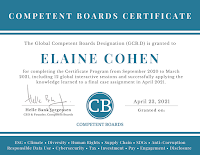


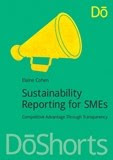

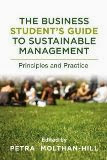
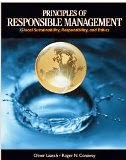
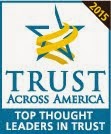










No comments:
Post a Comment